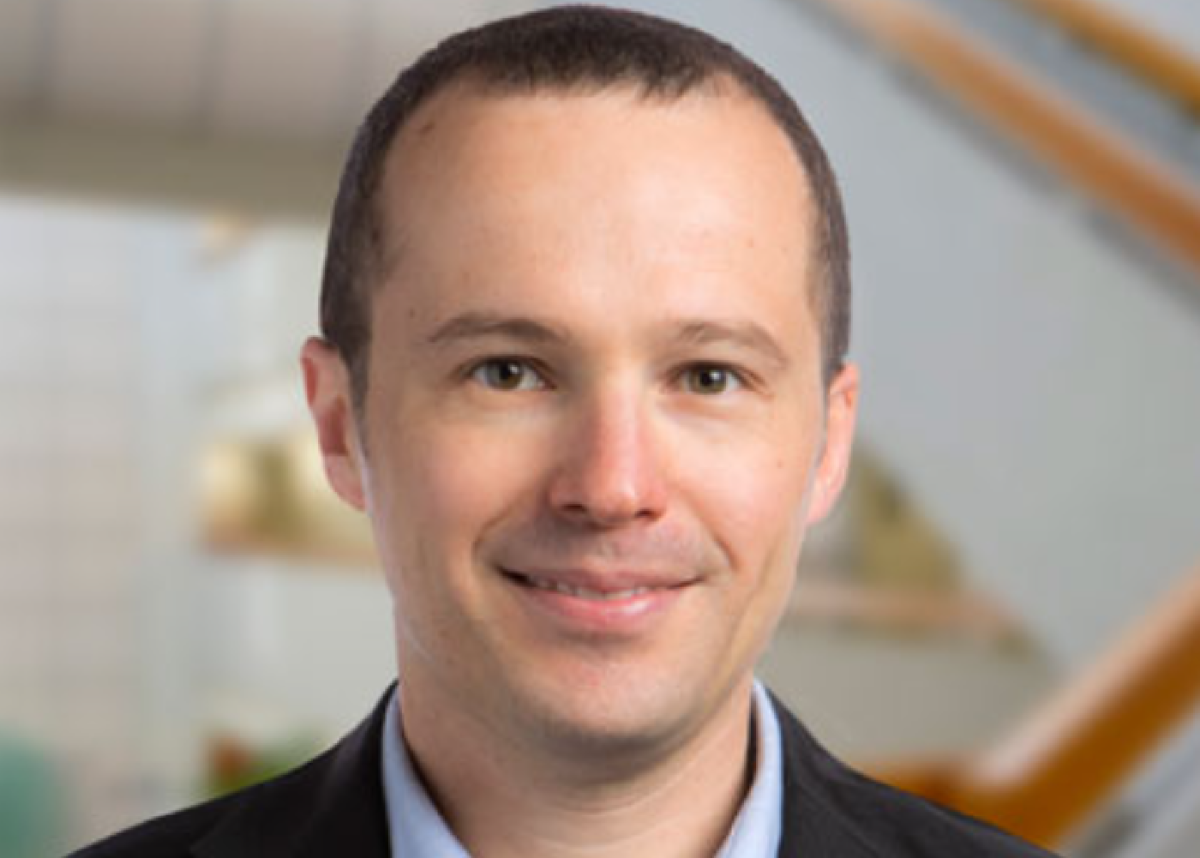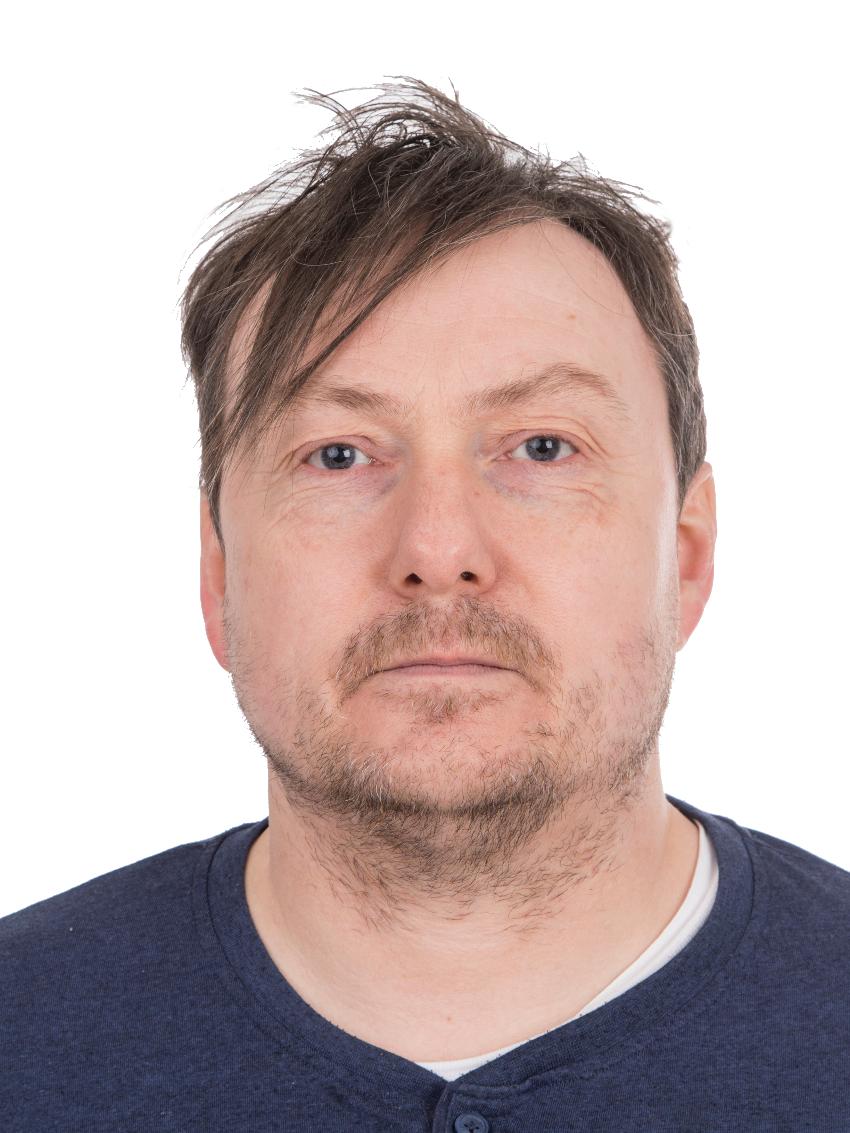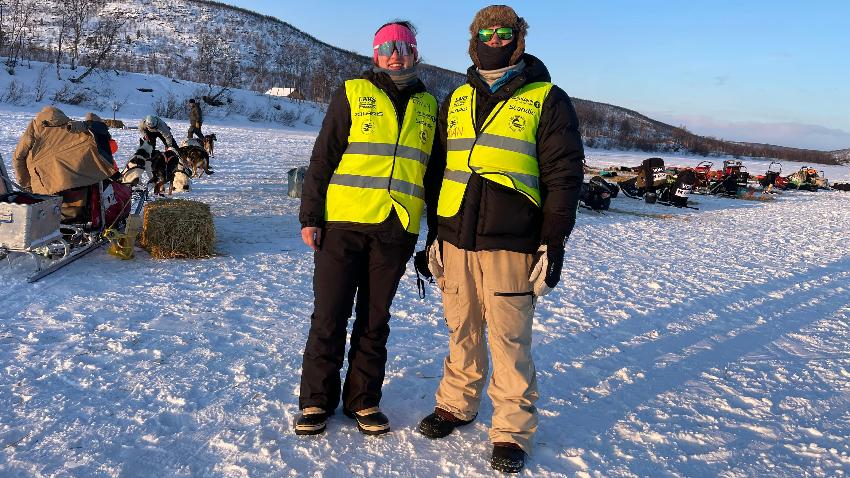Guest lecture Thursday June 15th, 2023: Dr. Giorgio Quer, Director of Artificial Intelligence at the Scripps Research Translational Institute
We are excited to announce that Dr. Giorgio Quer, Director of Artificial Intelligence at the Scripps Research Translational Institute, on Thursday June 15th, 2023 will be giving a guest lecture titled Digital Clinical Trials: AI and wearable sensors to change clinical practice.


The lecture will be held in person at Aud 1.023 in the Technology building (Teknologibygget).
Professional (academic) contact persons is Professor Lars Ailo Bongo.
Target group: PhD students and employees at CS department, and external from industry
Welcome!
----------------
Date: Thursday June 15th, 2023, at 13:15
Place: Aud 1.023 in the Technology building (Teknologibygget).
Title: " Digital Clinical Trials: AI and wearable sensors to change clinical practic "
Lecturer: Dr. Giorgio Quer, Director of Artificial Intelligence at the Scripps Research Translational Institute
Abstract
The Scripps Research Digital Trials Center leads groundbreaking studies that address the world’s most pressing health concerns. We leverage wearable sensors to re-engineer the clinical trial experience around the participant, passively and continuously collecting individual data. We process this large amount of data and propose new algorithms for prediction of patient outcomes.
In the field of infectious diseases, we proposed DETECT, an app-based, nationwide clinical study to determine if individualized tracking of changes in wearable signals can provide early diagnosis and self-monitoring for COVID-19. We recruited 40,000 individuals and proposed algorithms for real-time detection of COVID-19, and for monitoring long-COVID and vaccine reactogenicity using wearable sensors.
On cardiovascular health, we propose a post-hoc explainability framework for deep learning models, focusing on atrial fibrillation detection and prediction for individuals wearing a sensor patch. We also showed how to reconstruct the 12-lead electrocardiogram via fewer leads using deep neural networks, using data from 1.6 million patients.
We are exploring challenges in multi-modal AI towards individualized prediction of glycemic response to food, and monitoring maternal health with wearable sensors.
Short bio
Giorgio Quer is director of Artificial Intelligence at the Scripps Research Translational Institute, where he leads the Data Science and Analytics team within the All of Us Research Program’s Participant Center (NIH). The Participant Center spearheads the enrollment of new participants and their engagement in the program.
His research focuses on artificial intelligence and probabilistic modeling applied to heterogeneous data signals, in order to extract key information and make predictions on future occurrences based on past data. He is involved in several digital medicine initiatives within the Scripps Research Digital Trials Center. For the DETECT study, he is developing algorithms to predict COVID-19 and other viral infections from wearable sensor data. He is responsible for collaborations with several industry partners, studying changes in heart rate and sleep data monitored by commercial wearable devices. He is also interested in the detection and modeling of atrial fibrillation from single-lead ECG signals.
He received his PhD degree in Information Engineering from the University of Padova, Italy, and he continued his studies as a Postdoctoral researcher with the Qualcomm Institute at the University of California San Diego. He is a Senior Member of the IEEE and a Distinguished Lecturer for the IEEE Communications society.
Kortnytt fra Institutt for informatikk
-
Fiskeri- og havbruksvitenskap - bachelor
Varighet: 3 År -
Fiskeri- og havbruksvitenskap - master
Varighet: 2 År -
Akvamedisin - master
Varighet: 5 År -
Bioteknologi - bachelor
Varighet: 3 År -
Arkeologi - master
Varighet: 2 År -
Geosciences - master
Varighet: 2 År -
Biology - master
Varighet: 2 År -
Physics - master
Varighet: 2 År -
Mathematical Sciences - master
Varighet: 2 År -
Biomedicine - master
Varighet: 2 År -
Molecular Sciences - master
Varighet: 2 År -
Biologi - bachelor
Varighet: 3 År -
Medisin profesjonsstudium
Varighet: 6 År -
Luftfartsfag - bachelor
Varighet: 3 År -
Informatikk, datamaskinsystemer - bachelor
Varighet: 3 År -
Informatikk, sivilingeniør - master
Varighet: 5 År -
Geovitenskap- bachelor
Varighet: 3 År -
Biomedisin - bachelor
Varighet: 3 År -
Kjemi - bachelor
Varighet: 3 År -
Matematikk - årsstudium
Varighet: 1 År -
Ergoterapi - bachelor
Varighet: 3 År -
Fysioterapi - bachelor
Varighet: 3 År -
Radiografi - bachelor
Varighet: 3 År -
Farmasi - bachelor
Varighet: 3 År -
Farmasi - master
Varighet: 2 År -
Romfysikk, sivilingeniør - master
Varighet: 5 År -
Klima og miljøovervåkning, sivilingeniør - master
Varighet: 5 År -
Bærekraftig teknologi, ingeniør - bachelor
Varighet: 3 År -
Odontologi - master
Varighet: 5 År -
Anvendt fysikk og matematikk, sivilingeniør - master
Varighet: 5 År -
Praktisk-pedagogisk utdanning for trinn 8-13 - årsstudium (deltid)
Varighet: 2 År -
Internasjonal beredskap - bachelor (samlingsbasert)
Varighet: 3 År -
Ernæring - bachelor
Varighet: 3 År -
Marine Biotechnology - master
Varighet: 2 År -
Ph.d.-program i naturvitenskap
Varighet: 3 År -
PhD Programme in Natural Science
Varighet: 3 År -
PhD Programme in Science
Varighet: 3 År -
Lektor i realfag trinn 8-13 - master
Varighet: 5 År -
Kunstig intelligens, sivilingeniør - master
Varighet: 5 År -
Fysikk og matematikk - bachelor
Varighet: 3 År -
Nautikk - bachelor
Varighet: 3 År -
Medisin profesjonsstudium - forskerlinje
Varighet: 7 År -
Havteknologi, ingeniør - bachelor (ordinær, y-vei)
Varighet: 3 År -
Informatikk, datafag - bachelor
Varighet: 3 År -
Computer Science - master
Varighet: 2 År -
Fornybar energi, sivilingeniør - master
Varighet: 5 År -
Bærekraftig kjemi og innovasjon, sivilingeniør - master
Varighet: 5 År -
Musikkteknologi
Varighet: 1 År -
Computer Science - master
Varighet: 2 År -
Technology and Safety in the High North - master
Varighet: 2 År







